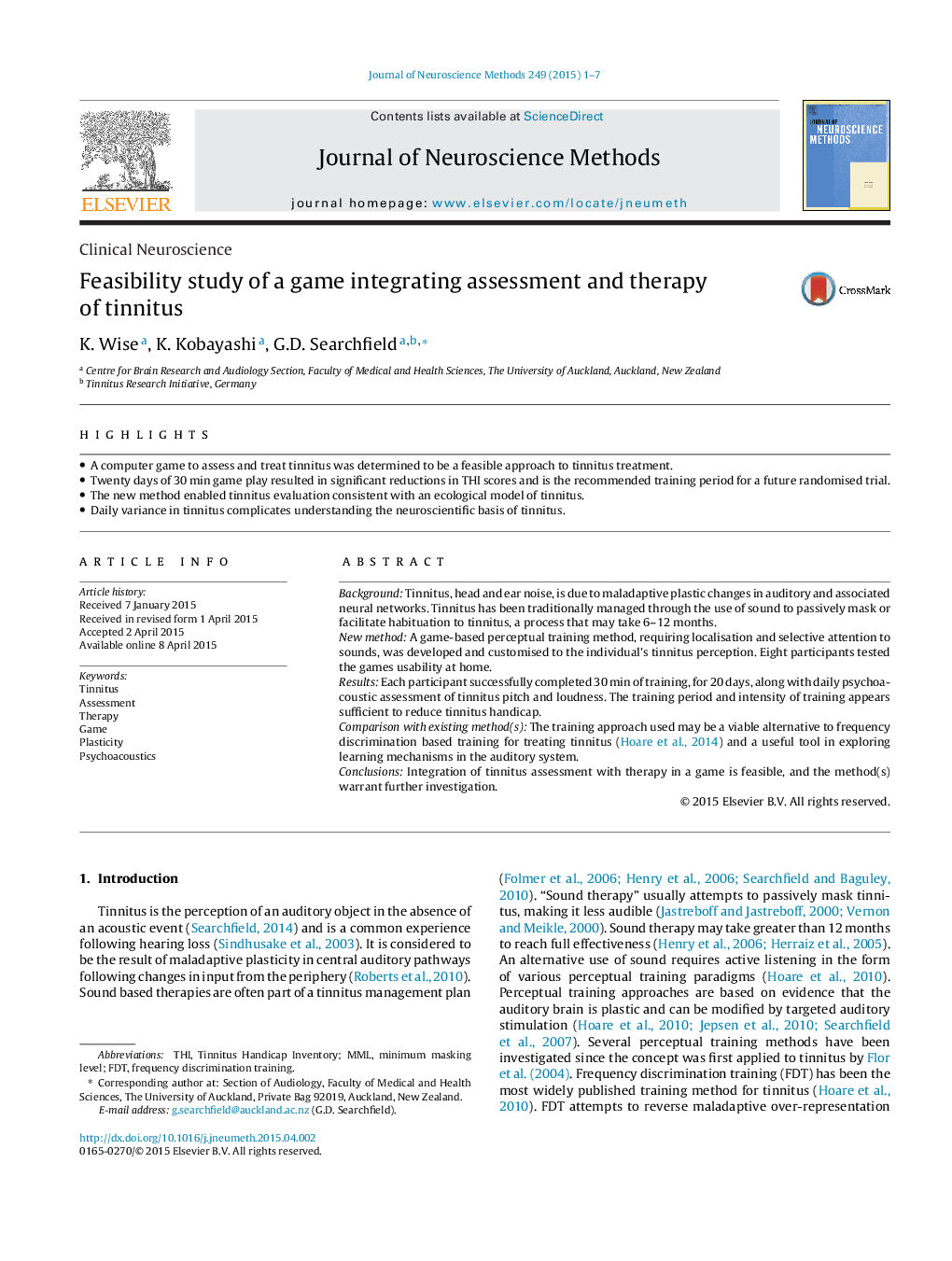| کد مقاله | کد نشریه | سال انتشار | مقاله انگلیسی | نسخه تمام متن |
|---|---|---|---|---|
| 6268221 | 1614620 | 2015 | 7 صفحه PDF | دانلود رایگان |

- A computer game to assess and treat tinnitus was determined to be a feasible approach to tinnitus treatment.
- Twenty days of 30Â min game play resulted in significant reductions in THI scores and is the recommended training period for a future randomised trial.
- The new method enabled tinnitus evaluation consistent with an ecological model of tinnitus.
- Daily variance in tinnitus complicates understanding the neuroscientific basis of tinnitus.
BackgroundTinnitus, head and ear noise, is due to maladaptive plastic changes in auditory and associated neural networks. Tinnitus has been traditionally managed through the use of sound to passively mask or facilitate habituation to tinnitus, a process that may take 6-12 months.New methodA game-based perceptual training method, requiring localisation and selective attention to sounds, was developed and customised to the individual's tinnitus perception. Eight participants tested the games usability at home.ResultsEach participant successfully completed 30Â min of training, for 20 days, along with daily psychoacoustic assessment of tinnitus pitch and loudness. The training period and intensity of training appears sufficient to reduce tinnitus handicap.Comparison with existing method(s)The training approach used may be a viable alternative to frequency discrimination based training for treating tinnitus (Hoare et al., 2014) and a useful tool in exploring learning mechanisms in the auditory system.ConclusionsIntegration of tinnitus assessment with therapy in a game is feasible, and the method(s) warrant further investigation.
Journal: Journal of Neuroscience Methods - Volume 249, 15 July 2015, Pages 1-7